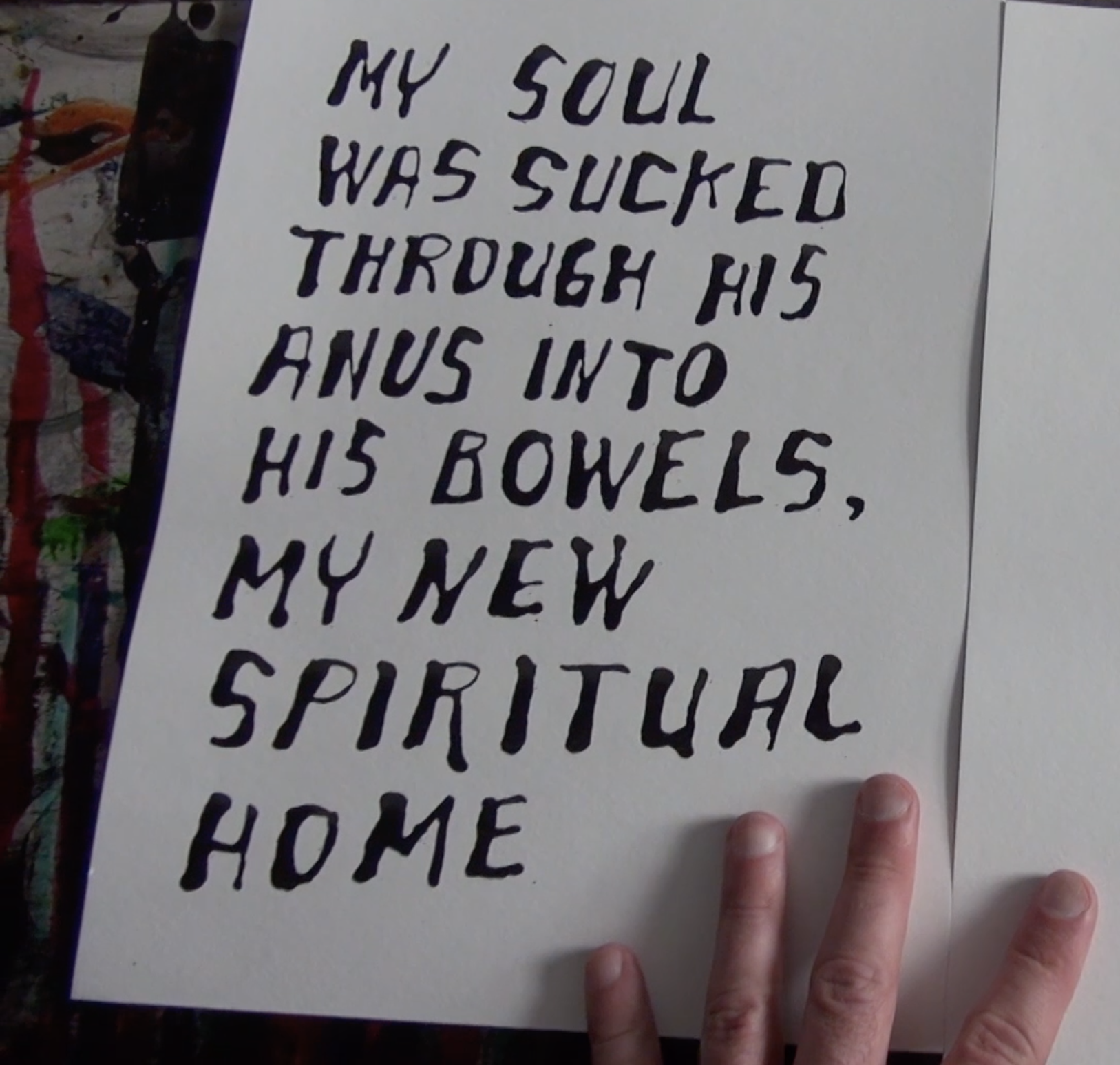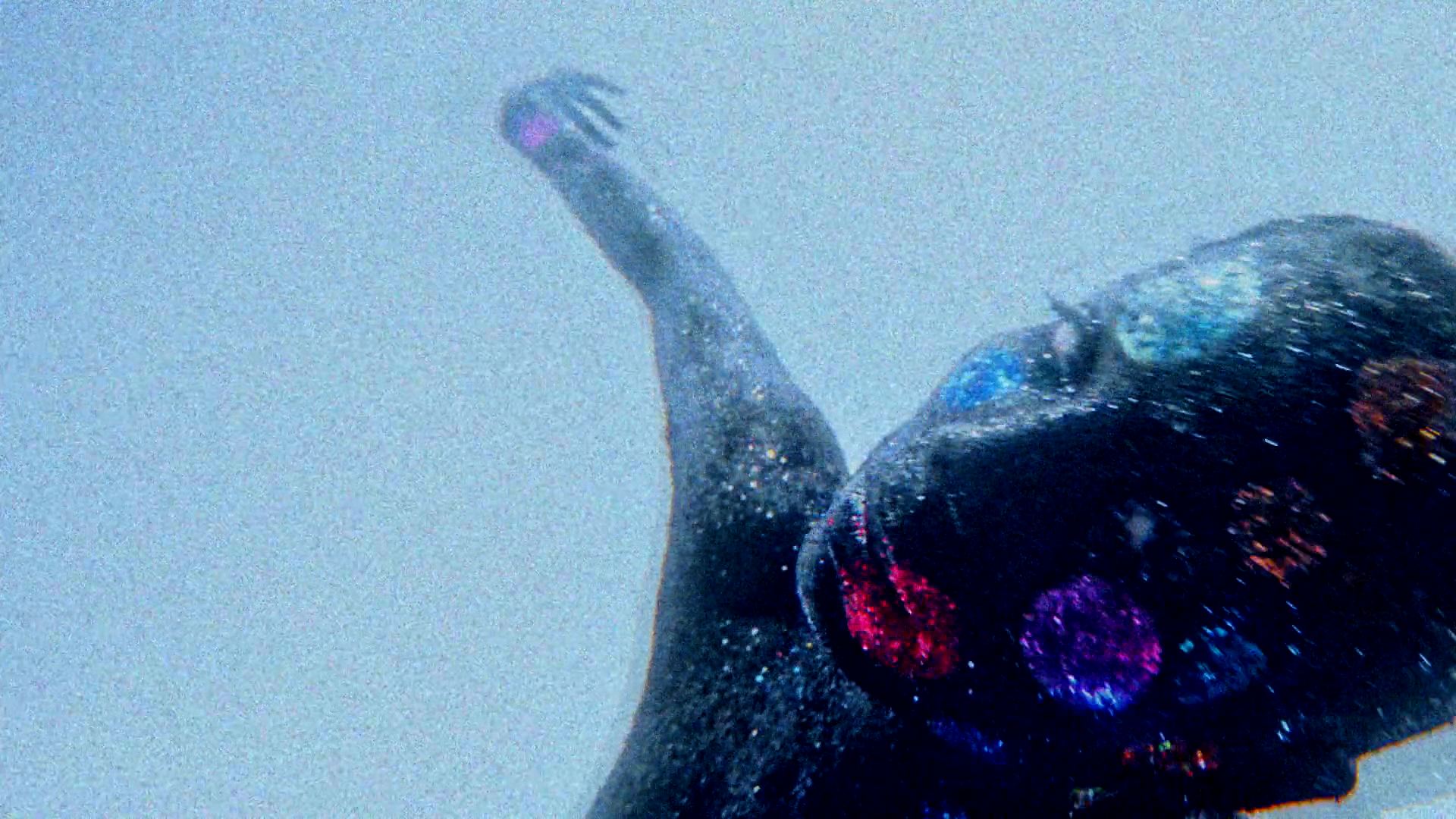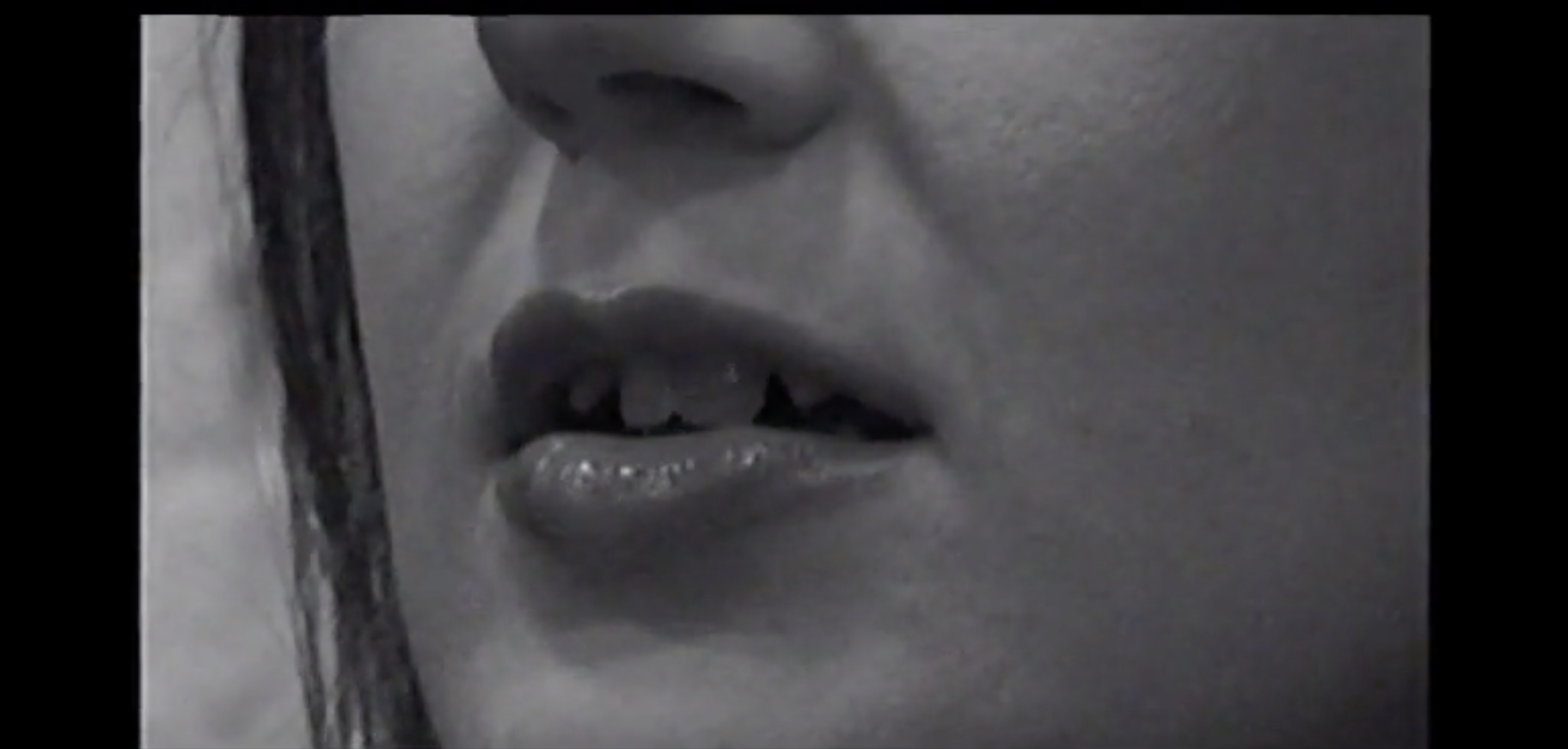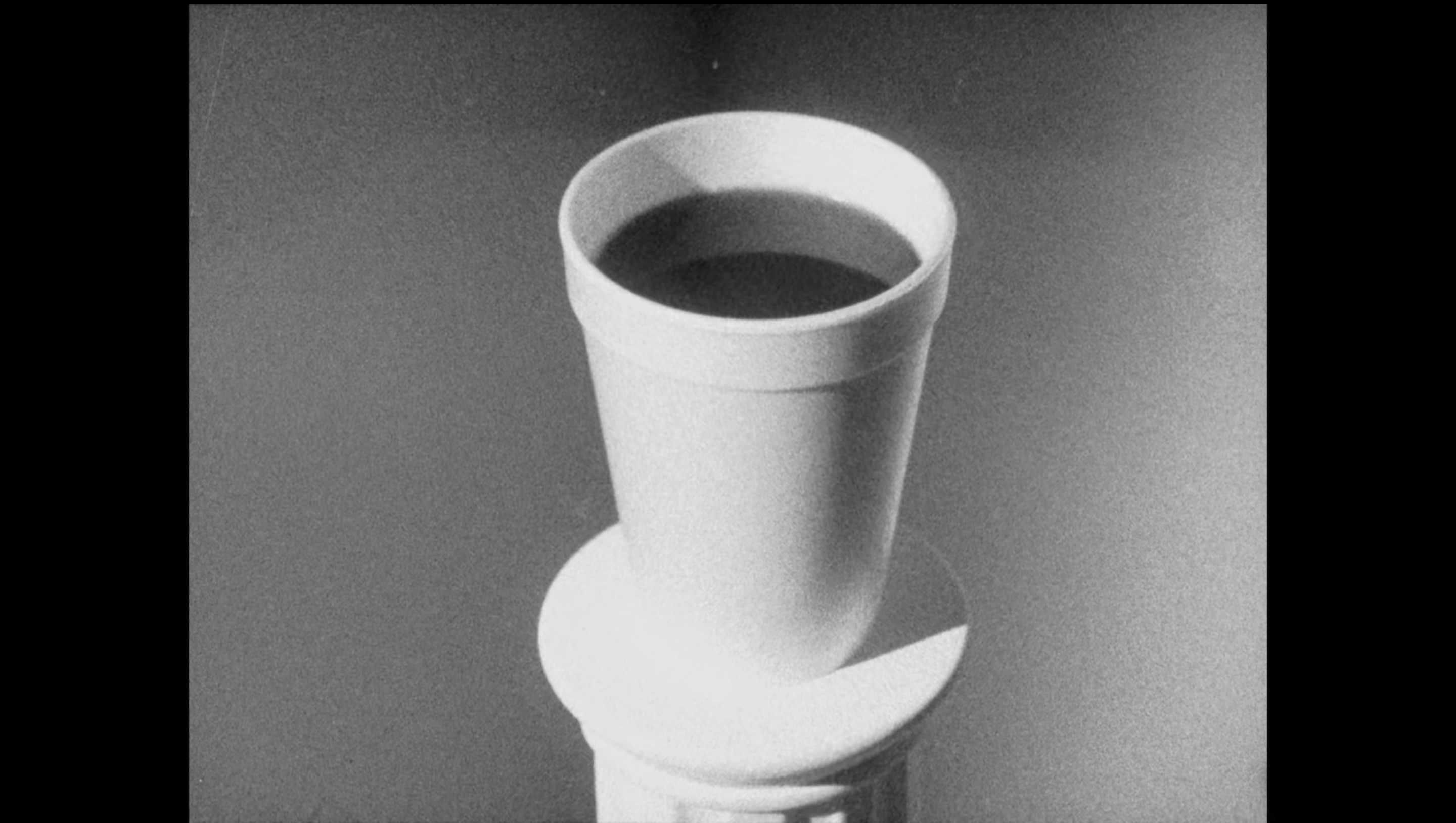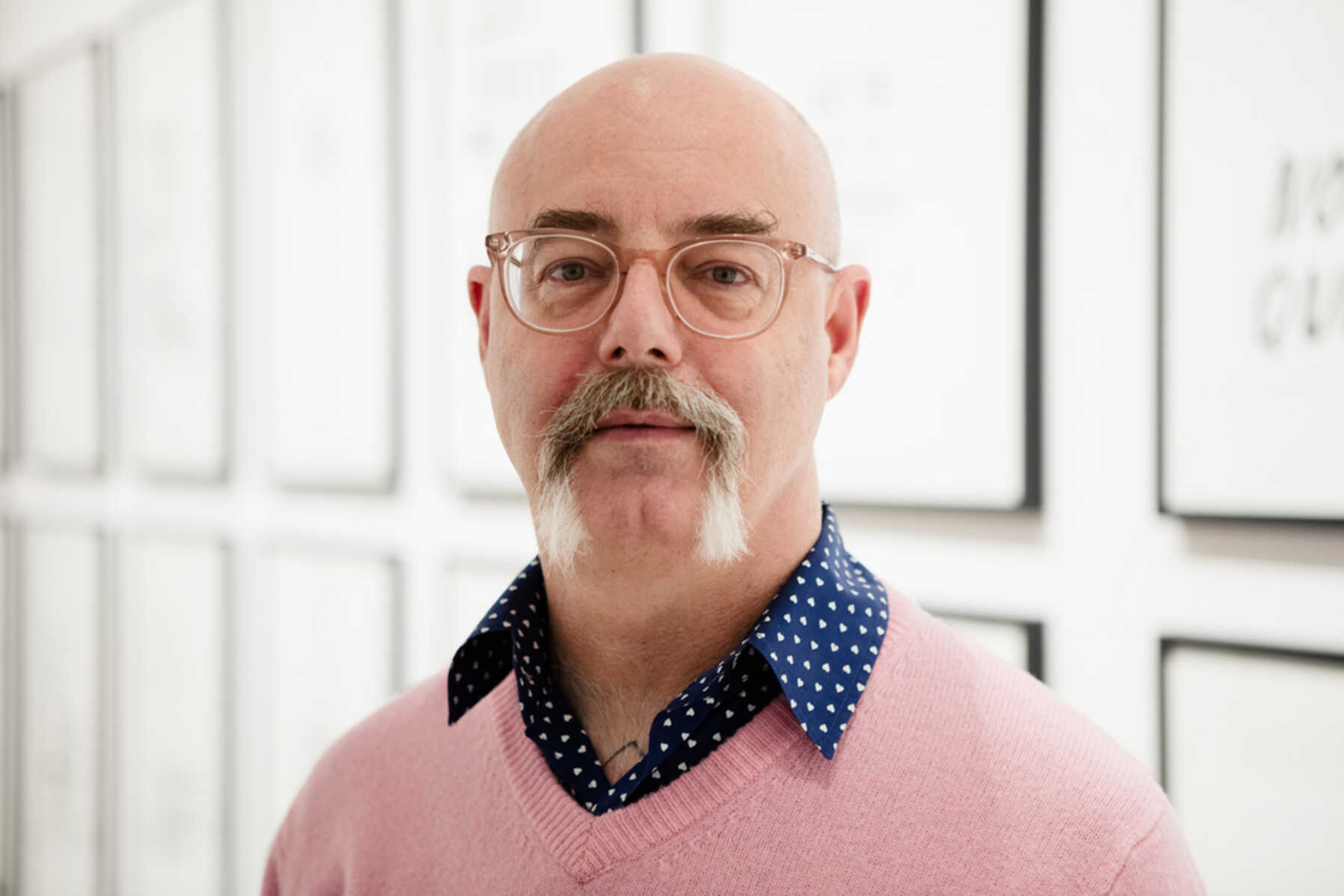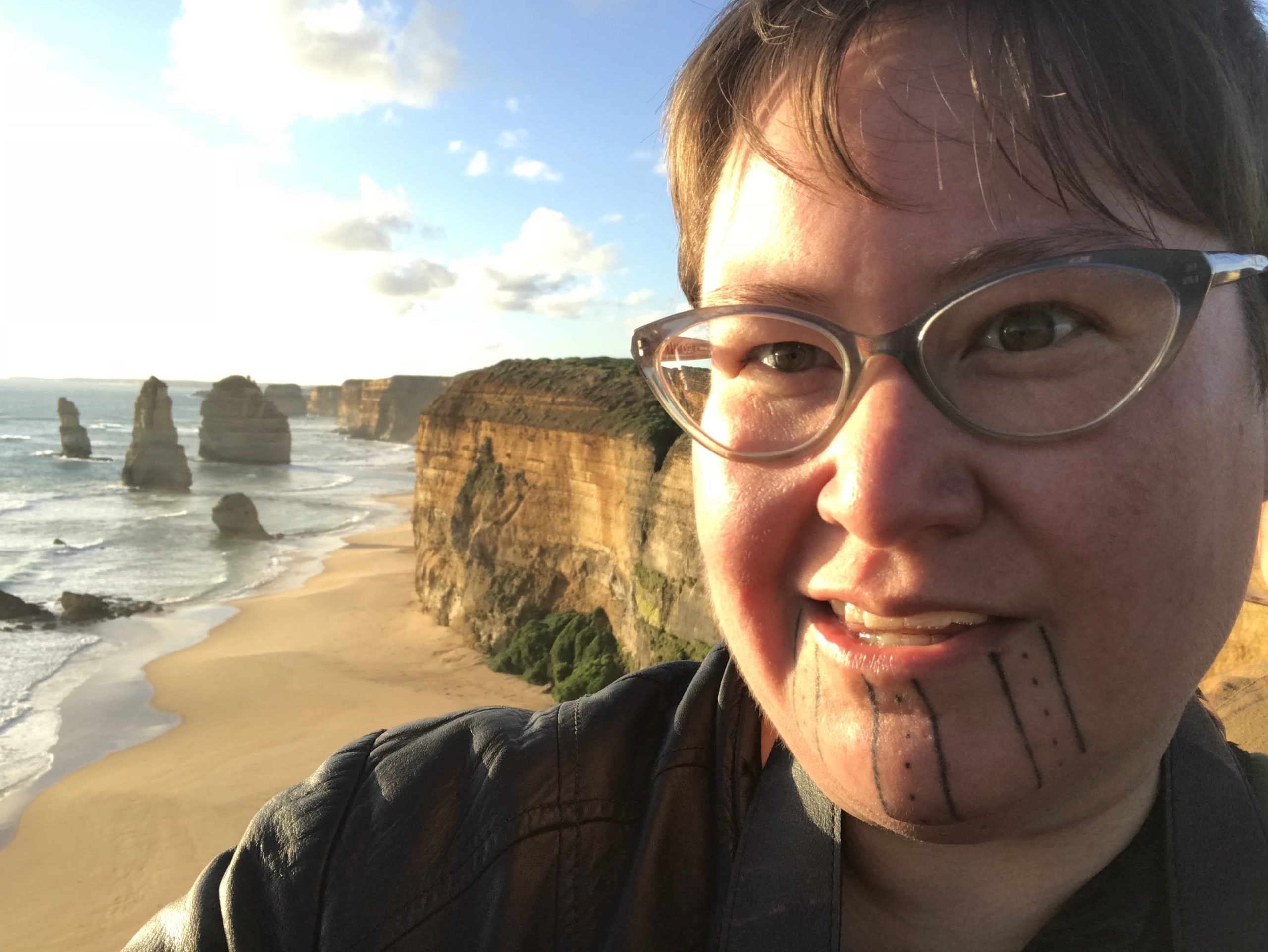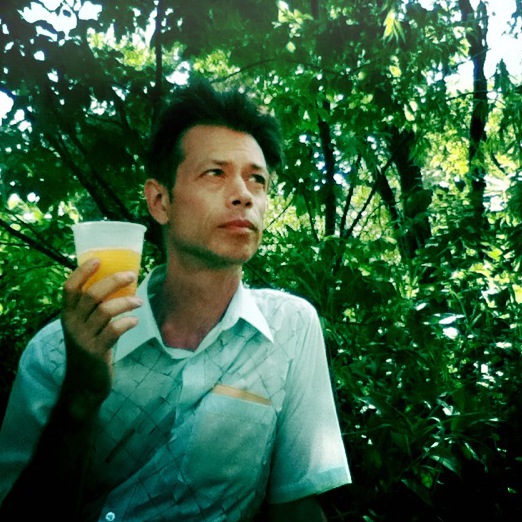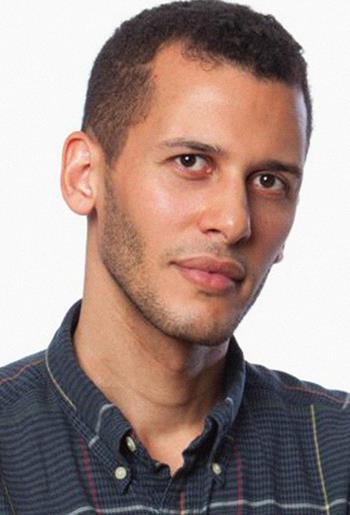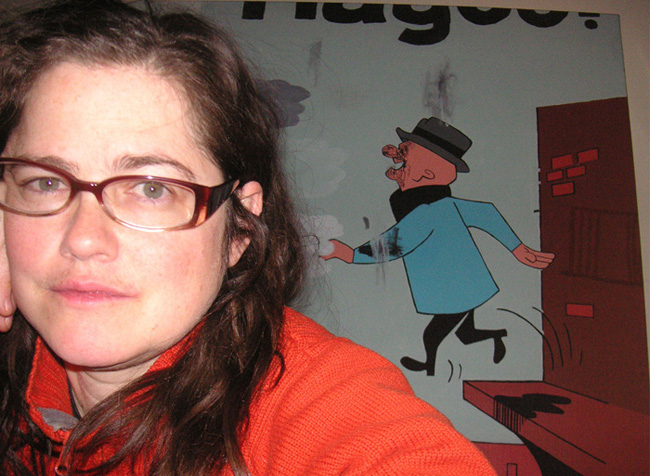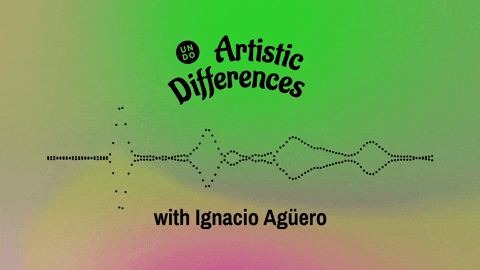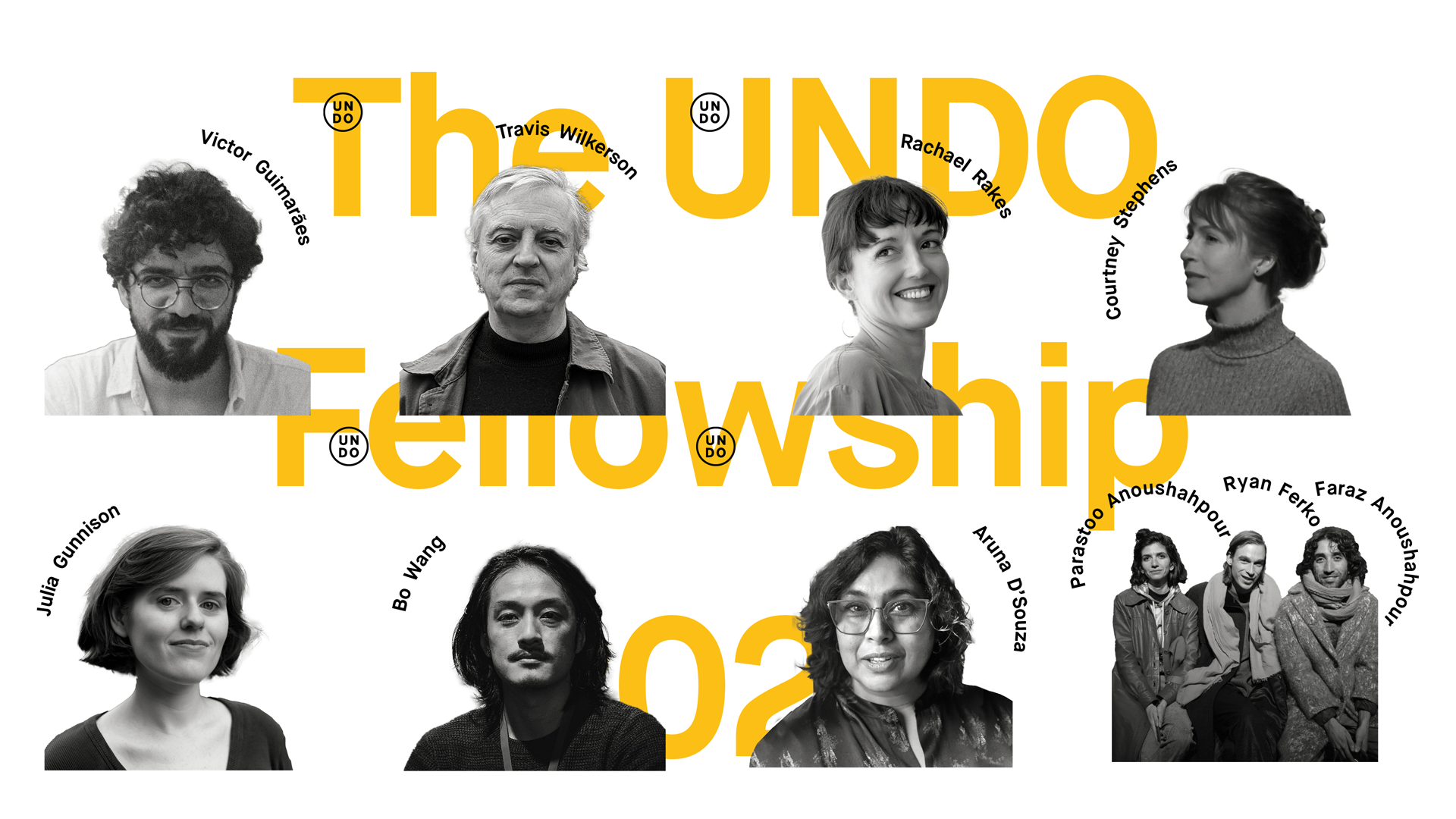Mar 11, 2022 at 10:00 am – Mar 13, 2022 at 5:00 pm
Inner Voices: Writing the Monologue
With Steve Reinke, Thirza Jean Cuthand, Jon Davies, Mike Hoolboom, Jennifer Montgomery & James N. Kienitz Wilkins
What role can the singular voice play in nonfiction work? How can one write oneself and one’s story into being? Join UnionDocs and Steve Reinke in a three-day exploration of “Inner Voices: Writing the Monologue,” and engage with a diversity of practices and practitioners engaged in asking and answering these very questions.
The workshop will begin with an introduction by Steve, who will engage participants in writing exercises while also situating their work in conversation with his own and with the seminar leads to come. That afternoon, James Kienitz Wilkins will discuss the role of language in his monologistic works. On Saturday, participants will hear from Mike Hoolboom, who will discuss his work with the single/singular voice as it ranges from the personal to the political to the meta and back again. Jennifer Montgomery will join on Saturday afternoon to discuss her exploration of the intimate through monologue. The weekend will close out with Thirza Cuthand, who, will be on hand to discuss their own approach to monologue as centered around queerness and Indigeneity. They will be followed by Jon Davies in the afternoon, who will be on hand (with Steve) to position the monologistic practices discussed over the preceding three days into the larger context he has explored as part of his work on More Voiceover: Colin Campbell Writings.
Throughout the weekend, participants will be provided with prompts from the visiting leads that will allow them to explore different approaches and techniques regarding monologue. They will also be able to discuss their own works in conversation with this illustrious group and with other participants. Anyone interested in the form, whether or not they have a piece they are working on, is invited to join.
NOTE: This workshop will require in-person participation from all participants. Each participant must present proof of vaccination and a negative COVID test administered within 72 hours of the workshop’s start. Any and all questions, please reach out to [email protected].
Details
Open to everyone, though the workshop setting is best suited for documentary filmmakers, aspiring podcasters, journalists, and media artists. This workshop is in person and will be conducted in compliance with CDC protocols.
Give us an idea of who you are and why you are coming. When you register you will be asked for a short statement of interest that should briefly describe your experience and a film project (it would be great if you have a project in progress that you would present to the group during the work-in-progress critique sessions), plus a bio. There’s a spot for a link to a work sample (and CV, which would also be nice, but is not required).
$350 early bird registration by March 5th, 2021 at 11:59PM.
$400 regular registration.
The deposit is non-refundable. Should you need to cancel, you’ll receive half of your registration fee back until March 5th. After March 5th, the fee is non-refundable.
In order to keep costs down, this workshop is a BYOL, i.e. bring your own laptop. Students must be fully proficient using and operating their computers.
NOTE: To register for a workshop, students must pay in full via card, check, or cash . After the early bird registration deadline of March 5th, course fees are not refundable or transferable and any withdrawals or deadlines will result in the full cost of the class being forfeit. There will be no exceptions. To withdraw from a course please email info-at-uniondocs.org.
In the event that a workshop does not receive sufficient enrollment, it may be canceled. Students will be notified at least 48 hours prior to the start of a cancelled workshop and will be refunded within 5 business days. If we reschedule a workshop to another date, students are also entitled to a full refund. UnionDocs reserves the right to change instructors without prior notification, and to change class location and meeting times by up to an hour with 48 hours prior notice.
Please note: Participants are accepted on a first-come, first-serve basis.
Schedule
Friday, March 11, – 10:00am - 4:00pm
Morning- Steve Reinke
10:00a – Intros, opening exercise
10:30a – Work presentation (Steve Reinke)
11:30a – Discussion
12:00p – LUNCH
Afternoon- James Kienitz Wilkins
1:00p – Opening exercise
1:30p – Work presentation (James Kienitz Wilkins)
2:30p – Wrap up with Steve, additional exercises / discussion
4:00p – End day
Saturday, March 12, – 10:00am - 4:00pm
Morning- Mike Hoolboom
10:00a – Intros, opening exercise
10:30a – Work presentation (Mike Hoolboom)
11:30a – Discussion
12:00p – LUNCH
Afternoon- Jennifer Montgomery
1:00p – Opening exercise
1:30p – Work presentation (Jennifer Montgomery)
2:30p – Wrap up with Steve, additional exercises / discussion
4:00p – End day
Sunday, March 13 – 10:00am - 4:00pm
Morning – Thirza Cuthand
10:00a – Opening exercise
10:30a – Work presentation (Thirza Cuthand)
11:30a – Discussion
12:00p – LUNCH
Afternoon- Jon Davies
1:00p – Opening exercise
1:30p – Work presentation (Jon Davies)
2:30p – Discussion
3:00p – Wrap up with Steve, additional exercises/discussion
4:00p – End day
Each day follows this general structure, with some minor variations and substitutions:
Steve Reinke is an artist and writer best known for his monologue-based video essays. His work is in many collections including the Museum of Modern Art (New York), Centre Pompidou (Paris), MACBA (Barcelona) and National Gallery (Ottawa). He has shown work at many film festivals including Sundance, Berlinale, Rotterdam, Oberhausen, BFI London and the New York FF. He has been in many exhibitions including the Whitney Biennial 2014. He is represented by Galerie Isabella Bortolozzi (Berlin). The Toronto International Film Festival named his The Hundred Videos (1989 — 1996) one of the 150 essential works In Canadian cinematic history. In 2006 he received the Bell Canada Video Award. A collection of his writings, The Shimmering Beast, was published in 2011. He has co-edited several anthologies, most recently Blast Counter Blast (with Anthony Elms) and The Sharpest Point: Animation at the End of Cinema (with Chris Gehman). He also works as a curator and critic, most notably assembling a box set of George Kuchar’s video work for the Video Data Bank. His research interests include rhetorical and narrative strategies for visual art, artists’ writing, queer Nietzsche, the voice and psychoanalysis.
Thirza Jean Cuthand was born in Regina, Saskatchewan, Canada in 1978, and grew up in Saskatoon. Since 1995 she has been making short experimental narrative videos and films about sexuality, madness, Queer identity and love, and Indigeneity, which have screened in festivals internationally, including the Tribeca Film Festival in New York City, Mix Brasil Festival of Sexual Diversity in Sao Paolo, ImagineNATIVE in Toronto, Ann Arbour Film Festival, Images in Toronto, Berlinale in Berlin, and Oberhausen International Short Film Festival. Her work has also exhibited at galleries including the Remai in Saskatoon, The National Gallery in Ottawa, and The Walker Art Center in Minneapolis. They completed their Bachelor of Fine Arts majoring in Film and Video at Emily Carr University of Art and Design in 2005, and her Masters of Arts in Media Production at X University in 2015. In 1999 she was an artist in residence at Videopool and Urban Shaman in Winnipeg, where she completed Through The Looking Glass. In 2012 she was an artist in residence at Villa K. Magdalena in Hamburg, Germany, where she completed Boi Oh Boi. In 2015 they were commissioned by ImagineNATIVE to make 2 Spirit Introductory Special $19.99. She was also commissioned to make Thirza Cuthand Is An Indian Within The Meaning Of The Indian Act by VIMAF and Queer Arts Festival in 2017. In 2018 they were commissioned to make the video Reclamation by Cinema Politica in the Documentary Futurism Next 150 project. In the summer of 2016 she began working on a 2D video game called A Bipolar Journey based on her experience learning and dealing with her bipolar disorder. It showed at ImagineNATIVE and was finished in 2020. She has also written three feature screenplays and has performed at Live At The End Of The Century in Vancouver, Queer City Cinema’s Performatorium in Regina, and 7a*11d in Toronto. In 2017 she won the Hnatyshyn Foundation’s REVEAL Indigenous Art Award. She is a Whitney Biennial 2019 artist. She is a non-binary Butch boy who uses She/They pronouns. They are of Plains Cree and Scots descent, a member of Little Pine First Nation, and currently resides in Toronto, Canada.
Jon Davies has a background in film and queer studies, and prior to arriving at Stanford worked as a contemporary art curator at The Power Plant, Oakville Galleries and the Art Gallery of Ontario in Toronto. Jon’s writing on cinema and contemporary art has been published in many anthologies, catalogues and journals, and he co-edited (with Sam Ashby) Little Joe magazine #5. His dissertation-in-progress, The Fountain: Art, Sex and Queer Pedagogy in San Francisco, 1945-1995, focuses on the intertwining of artistic and sexual experimentation in the Bay Area through the lens of pedagogy.
Mike Hoolboom is a Canadian artist working in film and video. He has made over fifty films and videos since 1980. (Exact numbers vary as Hoolboom notoriously prunes and reshapes his filmography: cutting some films, merging others and completely removing others from circulation.) He has also played a major curatorial and critical role in the Canadian avant-garde film community. He is a founding member of the Pleasure Dome screening collective and has worked as the artistic director of the Images Festival and as the experimental film co-ordinator at Canadian Filmmakers Distribution Centre. Hoolboom employed many traditional experimental film strategies — hand processing; altered found-footage and home movies; charged, often poetic and ruminative intertitles and voice-over. He has also collaborated with some of the foremost experimental film- and videomakers in Canada: Kika Thorne (Two, 1990), Steve Sanguedolce (Mexico, 1992) or Ann Marie Fleming (Man, 1991; The New Man, 1992). He has published more than one hundred articles on fringe media which have appeared in magazines and catalogues around the world. Hoolboom’s work includes dozens of films of various lengths and different sensibilities that, according to critic Geoff Pevere, “demonstrated a consuming interest in navigating the outer limits of perception, of language, of self, of mechanical reproduction, of bodily sensation and experience (and most recently, and surprisingly, of the discourse of nationhood.”
James N. Kienitz Wilkins is a filmmaker and artist. His films and videos have screened widely at international film festivals including Berlin, Toronto, New York, Locarno, Rotterdam, CPH:DOX, BAMcinemaFest, New Directors/New Films, and beyond. In 2017, he was included in the Whitney Biennial and a retrospective of his work was showcased at RIDM (Montréal). Solo exhibitions include Gasworks (London), Spike Island (Bristol, UK) and Kunsthalle Winterthur (Switzerland).
Jennifer Montgomery’s film titles include One Species Removed (2012), The Agonal Phase (2010), Deliver (2008), Notes on the Death of Kodachrome (2006), Threads of Belonging (2003), Transitional Objects (2000), Troika (1998), Art For Teachers of Children (1995), I, a Lamb (1992), Age 12: Love With a Little L (1990), and Home Avenue (1989). Most recently, she collaborated with the artist Josiah McElheny on a short film, The Light Club of Vizcaya (2012). These films range from experimental essays to experimental features, and are distributed by Zeitgeist Films, Waterbearer Films, Women Make Movies, and Video Data Bank. Her work has shown at international festivals, as well as the 2008 Whitney Biennial (NYC), MoMA (NYC), the Brooklyn Academy of Music, the Gene Siskel Film Center (Chicago), the ICA (London), and the Walker Arts Center (Minneapolis). She has been the recipient of many grants, including a Guggenheim Fellowship.


